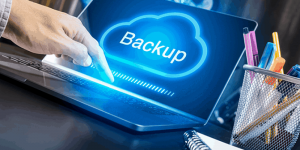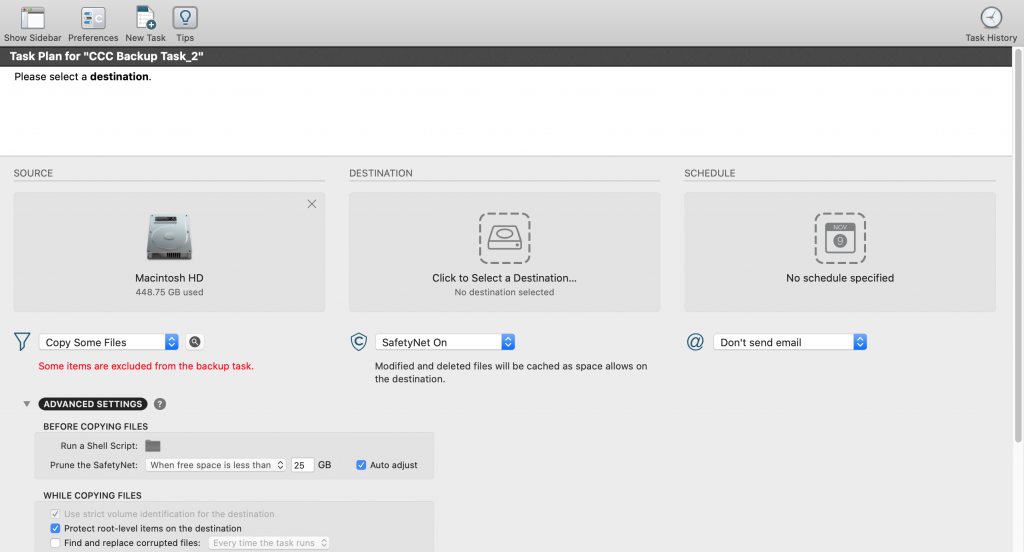
Back Your Music Up!
Something that I am extremely passsionate about is one of the more unglamourous aspects of being a DJ. But it is also one of the most important.
Backing up your data.
Primarily, this means your music library. But it extends beyond that. Your file system, the way you arrange your crates, your invoices, artwork, photos from gigs, etc etc. Anything that is critical to your job as a DJ, and everything that entails.
So, today I’m going to talk you through a few ways to safeguard your music and your data.
Insurance Policy
Its useful to think of backups as a kind of insurance. Many moons ago, I worked in insurance. The founding principle of the industry is that everyone pays into a pot, and then if you suffer a loss (theft, fire, whatever), the pot pays out and gets you back where you were before the loss. Its an inconvenience to have to have insurance, and its one of the rare things in life that you pay for and hope you never have to use. But it is a very good idea to have it, because if something goes wrong…
This is much like the principle of backups. I don’t really ever want to need them and they can sometimes be a hassle to maintain, but far more than that, I NEVER, EVER, EVER want to need them and not have them. I have heard far too many horror stories of DJs who didn’t have backups and then had their laptop stolen at a gig, or their house burgled, and so on.
Physical Backups
This is the most obvious. So, you have your laptop and/or desktop computer. For most DJs, that’s a Macbook of some sort. But whatever it is, a regular backup to a physical external hard drive is an extremely good idea.
I use Carbon Copy Cloner to do backups of my DJ Macbook, and a couple of key external hard drives that I have that are full of music. Time Machine can do similar. And other similar services exist for PC, the best of which are detailed here. What is really cool with these services is that you can update your backups in a way that retains old data from previous backups, which is no longer on your computer. This capability depends on the hard drive capacity, but it can be very useful if you realise you’ve deleted something in error and need to go back to it, or if you want to take your computer back to an old set up after an update you don’t like.

Now, this is all great. You’ve got your laptop, you’ve got some externals, including a backup external with all your critical data on it! Nothing to worry about right? WRONG!
Let me tell you a story, about a friend of mine who is a computer specialist. He had SEVEN backup hard drives for his various laptops and desktops. He was extremely pleased with himself about how thorough he had been with his backing up of data. Which was all going great, until he got burgled. And the burglars took every single computer, and every single hard drive, meaning he had lost literally EVERYTHING.
So – what is the lesson here? Make an external that you do regular backups to, and then give it to a trusted neighbour, friend or family member to look after at their home. Get it from them periodically to update the backup, but generally leave it with them. If all your backups are in one location, you are a hostage to fortune – burglaries happen, floods happen, fires happen.
In terms of what brands to buy – read reviews, especially from tech specialist sites. All hard drive manufacturers will have some failure rate. Its inevitable with the technology, but a bit of research should help you avoid too many problems. If you can afford Solid State Drives (SSD), they are more reliable, as there are less moving parts involved. I have a mix of Lacie and Western Digital hard drives, and have no complaints about either.
The fact that drives sometimes fail leads me to the next form of backing up your data…
Cloud Backups
This is a relatively recent development, but I highly recommend that you get on board with this. In fact, I use 2 separate cloud services to maximise my cover and flexibility. I have Dropbox, and Backblaze. My 2tb Dropbox cost me £124.88 for the most recent year, Backblaze I paid $132 in 2019 for 2 years (if memory serves it was a discount deal), and it is unlimited.
With Dropbox, I have placed my entire iTunes library in there. I also have my invoices, all my artwork and press photos, and anything else that I consider vital to my DJ career. If my laptop dies, or is stolen, I can go out, buy a new laptop, instal Dropbox and wait for it to sync up, and then hey presto, all the really important stuff is exactly where I want it to be. It just sits on my laptop like a folder, making it incredibly easy to navigate, share things, move stuff around, and have instant access to my tunes and critical data.

Backblaze is less instant, and more of a background thing. And because if how much I back up to it, it can sometimes seem pointless to start – I’ve had so many friends say “it would take months, I can’t do that”. Well guess what – they said that years ago, and if they’d just got Backblaze, they could have all their data backed up on the cloud now!
I have well over 4TB backed up on there. One handy feature that I have used – you can go online and search your backed up files, and download them individually. So, sometimes I’ve had a request I want to play, or just thought of some obscure album track I’d like to use – I can go online, download, pop it into Serato, and be playing it within a minute. I’ve done this dozens of times during performances. You can even arrange to get a hard drive sent to you by Backblaze with all your backed up data on it, for a fee.
Other handy tactics
This isn’t exactly a backup, but in a sense it is. I mainly DJ with Serato, but I do occasionally play off Rekordbox. So I have a bunch of 128GB USB sticks, loaded with music of various styles. Given that I am picking the most likely stuff I will end up playing (vs a laptop, where often its full of things you’ll never even consider playing), these USB sticks are actually a pretty decent emergency backup in the event of something bad happening – plus they enable you to have a bit of versatility in how you play out, in case of tricky equipment situations, or simply not wanting to take your laptop out that night for whatever reason.
So there you go. I have heard far, far too many horror stories where DJs have simply not backed up their music, and are left in a terrible situation after a robbery or other data loss. Its not glamourous, its not exciting, but its one of the most important things a DJ can do in the digital age. Please, back up your music as fully as you can, and make sure it isn’t all stored in one location – either by storing a backup in another location, by using cloud services, or both.
For now – go check out the brilliant Heavy Hits pool to get the best new music, and head over to our socials on Instagram, Twitter and Facebook.

